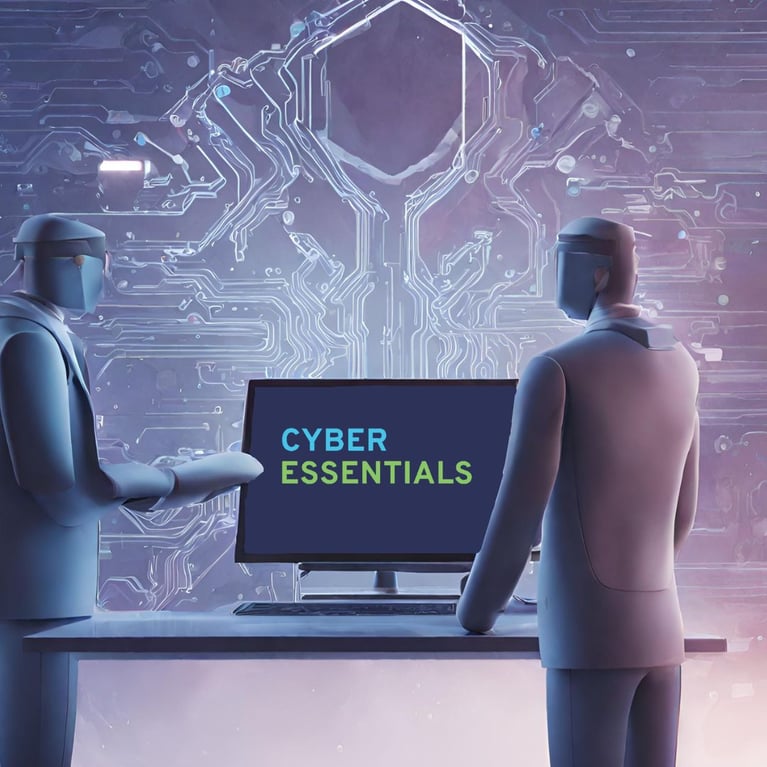The holiday season, a time of joy and giving, is unfortunately also prime time for scammers and cybercriminals. At Inflection Point, we're committed to keeping your business secure. Here are ten common holiday season scams and how to avoid them:
1. Phishing Emails Disguised as Holiday Offers
Cybercriminals exploit the holiday season to send phishing emails that mimic legitimate holiday promotions or charity drives. These emails might look like incredible offers or urgent requests for help, but their true intent is malicious. They often contain links or attachments that, when clicked, can install malware on your system or steal sensitive data. Train your employees to recognise and report suspicious emails. Remind them to double-check the sender's details and avoid clicking on unverified links or downloading attachments from unknown sources.
2. Employee Impersonation Scams
Also known as CEO fraud, these scams involve impersonating a high-level executive and requesting urgent fund transfers or confidential information from employees. This type of scam can be particularly effective during the holiday season when employees may be more willing to comply with urgent requests from their superiors. To protect your business from these scams, it is crucial to create a culture of security where employees feel comfortable verifying unusual requests.
By establishing a culture of security and implementing robust verification processes, you can significantly reduce the risk of falling victim to CEO fraud during the holiday season. Remember, it is always better to be cautious and verify the legitimacy of a request rather than risk compromising sensitive information or falling victim to a scam.
3. E-commerce Fraud
The surge in online shopping during the holidays makes e-commerce fraud particularly rampant. Scammers set up fake websites that look strikingly similar to legitimate ones, offering high-demand goods at low prices. These sites often aim to steal credit card information or sell non-existent products. Advise employees to shop only on reputable websites, look for secure payment gateways, and check for customer reviews. Regularly monitor company credit card statements for any unauthorised or suspicious transactions.
4. Gift Card Scams
Gift card scams can take many forms, from selling counterfeit or empty gift cards online to tricking individuals into paying for services with gift cards. Educate your employees about these scams, especially the fact that gift cards are not a standard form of payment for legitimate services. They should be wary of any requests for payments or donations via gift cards. If purchasing gift cards, do so from known retailers and check the cards for any signs of tampering.
5. Travel Scams
Travel scams lure victims with offers of free or discounted holiday packages or accommodations. These fraudulent offers are often distributed via email, social media, or even through legitimate-looking websites. Remind your employees to book travel arrangements through known and trusted travel agencies or platforms. They should be cautious of deals that seem too good to be true and avoid sharing personal or payment information without verifying the legitimacy of the offer.
6. Social Media Scams
Social media scams during the holiday season can include fake advertisements, fraudulent contests, or phishing links disguised as promotional offers. Encourage your team to approach deals and contests found on social media with skepticism. Verify the legitimacy of any offers by checking the official websites or customer service channels of the brands in question. Remind them not to share personal information or make payments through unverified social media links.
7. Invoice and Payment Scams
These scams often involve fraudsters posing as vendors or suppliers and requesting payment to a new account under the guise of updated banking details. It is crucial for businesses to establish and enforce strict verification processes for any changes in payment details to prevent falling victim to these scams. One effective way to do this is by implementing a two-factor authentication process, where any changes to payment details must be verified through multiple channels, such as phone calls or in-person meetings.
To further protect your business, it is essential to train your finance team on how to detect and respond to these scams. They should be educated on the importance of cross-checking and confirming any requests directly with the supplier through known and established communication channels. This means not relying solely on email correspondence, as scammers can easily impersonate legitimate vendors or suppliers through email spoofing.
Encourage your finance team to exercise caution when receiving requests for changes in payment details. They should be vigilant for any red flags, such as sudden changes in bank account information or urgent requests for immediate payment. If there is any doubt, they should reach out to the supplier using a verified contact number or email address to verify the legitimacy of the request.
8. Ransomware and Malware Attacks
During the holiday season, when staffing might be low, and vigilance relaxed, there’s an increased risk of ransomware and malware attacks. Cybercriminals take advantage of the holiday rush and the distractions that come with it to launch their malicious campaigns. To protect your business, it is crucial to take proactive measures.
First and foremost, ensure that all your systems are updated with the latest security software and patches. Outdated software is more susceptible to vulnerabilities that hackers can exploit. Regularly check for updates and install them promptly to stay one step ahead of potential threats.
Educating your employees about the risks of unsolicited email attachments and links is also crucial in preventing ransomware and malware attacks. Remind them to exercise caution when opening emails from unknown senders or clicking on suspicious links. Emphasize the importance of not downloading or opening any attachments that appear suspicious or unexpected. Encourage them to report any suspicious emails to the IT department immediately.
9. Fake Charity Scams
The spirit of giving during the holidays can be exploited by scammers through fake charity scams. These scams involve soliciting donations for non-existent charities or fraudulently using the names of legitimate ones. Encourage your team to research charities before making any donations and use official websites or trusted platforms for contributions. Establish a policy for charitable giving and educate your employees about the common signs of charity scams.
10. Wi-Fi Hacking in Public Spaces
With the holiday season comes increased travel, leading to greater use of public Wi-Fi networks, which can be insecure. Educate your employees about the risks associated with using public Wi-Fi for business activities. Encourage the use of VPNs (Virtual Private Networks) and advise against accessing sensitive company information or performing financial transactions over public networks.
Conclusion
As the holiday season brings its cheer and busyness, it also demands heightened vigilance against the spike in cyber scams. At Inflection Point, our goal is to ensure that your festive season is as safe as it is joyful. Remember, the key to safeguarding your business lies in awareness, education, and proactive cybersecurity measures. Encourage a culture of caution and security within your organisation. Regularly communicate with your team about the latest scams and remind them of best practices in cybersecurity.
By working together and staying alert, we can ensure that the only surprises this holiday season are the ones wrapped up under the tree. Let’s keep the festive spirit - and your business - safe and cheerful by keeping the business and its data secure.
 Top 10 Winter Tech Tips: Protecting Your Devices and Data in the Cold
Top 10 Winter Tech Tips: Protecting Your Devices and Data in the Cold Navigating the World of Compliance: GDPR, Cyber Essentials, and Beyond
Navigating the World of Compliance: GDPR, Cyber Essentials, and Beyond DNSFilter: Revolutionising Cybersecurity for Modern Businesses
DNSFilter: Revolutionising Cybersecurity for Modern Businesses Top 10 Festive Season Scams: Safeguarding Your Business Against Seasonal Cyber Threats
Top 10 Festive Season Scams: Safeguarding Your Business Against Seasonal Cyber Threats Embracing Next-Generation Cybersecurity with SentinelOne: A Deep Dive for Modern Businesses
Embracing Next-Generation Cybersecurity with SentinelOne: A Deep Dive for Modern Businesses